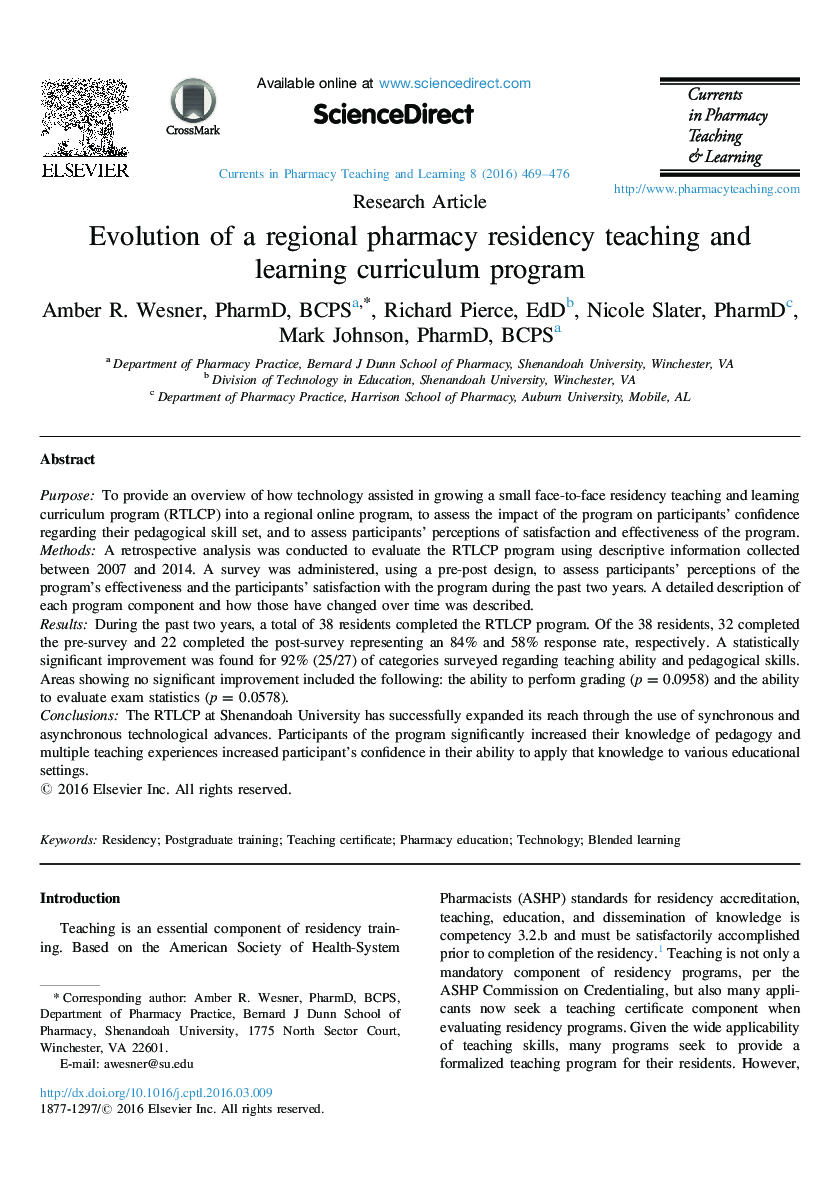| Article ID | Journal | Published Year | Pages | File Type |
|---|---|---|---|---|
| 352940 | Currents in Pharmacy Teaching and Learning | 2016 | 8 Pages |
PurposeTo provide an overview of how technology assisted in growing a small face-to-face residency teaching and learning curriculum program (RTLCP) into a regional online program, to assess the impact of the program on participants’ confidence regarding their pedagogical skill set, and to assess participants’ perceptions of satisfaction and effectiveness of the program.MethodsA retrospective analysis was conducted to evaluate the RTLCP program using descriptive information collected between 2007 and 2014. A survey was administered, using a pre-post design, to assess participants’ perceptions of the program’s effectiveness and the participants’ satisfaction with the program during the past two years. A detailed description of each program component and how those have changed over time was described.ResultsDuring the past two years, a total of 38 residents completed the RTLCP program. Of the 38 residents, 32 completed the pre-survey and 22 completed the post-survey representing an 84% and 58% response rate, respectively. A statistically significant improvement was found for 92% (25/27) of categories surveyed regarding teaching ability and pedagogical skills. Areas showing no significant improvement included the following: the ability to perform grading (p = 0.0958) and the ability to evaluate exam statistics (p = 0.0578).ConclusionsThe RTLCP at Shenandoah University has successfully expanded its reach through the use of synchronous and asynchronous technological advances. Participants of the program significantly increased their knowledge of pedagogy and multiple teaching experiences increased participant’s confidence in their ability to apply that knowledge to various educational settings.
